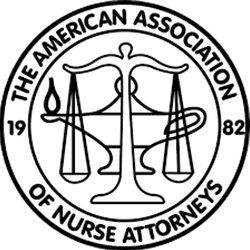Wrong Medication: What You Need to Do
Even the most effective medications are only beneficial if you take them as indicated. Consider that much drug abuse involves drugs that have at least one legally accepted medical use; the only controlled substances that are never legal in a medical context are Schedule I controlled substances. What happens, though, if you had every reason to believe that you were taking your medication properly, but you suffered an adverse reaction because a doctor, nurse, or pharmacist gave you the wrong medication or the wrong dose? Medication errors are one of the most common types of medical errors. If you suffered a serious illness or injury because you received the wrong medication as part of your medical treatment, contact a Dallas medical malpractice lawyer.
How Medication Errors Occur
Doctors and healthcare facilities must follow strict regulations about the prescribing and administering of drugs. These are some situations where medication errors can occur:
- Doctors do not read a patient’s medical chart carefully enough before prescribing a drug to be taken on an outpatient basis or ordering its administration in a hospital setting. The doctor might not notice that the patient has a pre-existing condition for which the drug is contraindicated or prescribes the wrong dose for the patient’s weight.
- An emergency room doctor, who does not have access to the patient’s entire medical records, does not take a thorough enough medical history before making a decision about which drugs to prescribe in which doses. If the doctor had been more diligent in taking a medical history, the error could have been avoided.
- A pharmacist makes an error in filling a prescription because he or she did not read the prescription carefully enough or was distracted when filling it.
- A nurse in a hospital connects the wrong medication to a patient’s IV line.
- A nurse in a nursing home gives the wrong pills to a patient.
Filing a Medical Malpractice Lawsuit Related to a Medication Error
If you suffered preventable harm because a doctor made a wrong decision about your medication, you have the right to file a medical malpractice lawsuit. The same legal principles govern medical malpractice lawsuits as those that govern other types of personal injury lawsuits. This means that when you file a medical malpractice lawsuit related to a medication error, you must prove the following things:
- The doctor had a duty of care. To prove this, you must prove that there was a doctor-patient relationship, even if it was in an emergency setting.
- The doctor breached the duty of care by making a medical error. To prove this, your lawyer must consult other doctors who have similar training and clinical experience to the one that treated you. They must explain what the doctor should have done in your situation and how the doctor’s actions deviate from the standard of care.
- You suffered harm as a direct result of the doctor’s actions. Since you were already sick when you first visited the doctor, the doctor might argue that the adverse reaction was a natural consequence of your illness, and it still would have happened if the doctor had acted differently. The testimony of expert witnesses can help you prove this claim.
- You suffered financial losses because of the preventable adverse event. Your past and future medical expenses related to the adverse event are the easiest to prove. If the adverse event rendered you temporarily or permanently unable to work, then your lost income is also a financial loss arising from the doctor’s negligence.
Are Medication Errors a Sign of Nursing Home Neglect?
Medication errors can happen anywhere that patients interact with healthcare providers, but one of the most common settings where they occur is in nursing homes. This is because, in a nursing home, one nurse is responsible for administering medicine to dozens of patients, and most of them take multiple pills or other oral medications several times per day. Every morning and afternoon, a nurse makes his or her rounds with a cart full of little cups of pills, with each cup full of the pills that each patient must take at that time of day. Because there are so many pills, there are more chances that a nurse will put the wrong pills in a cup or give the wrong cup to the wrong patient. One would be hard-pressed to find a nursing home that has a 100% accuracy rate when it comes to administering pills. Regulators do not get suspicious when there are a few errors every now and then. Just one error can cause a serious illness, though. If medication errors are one of many problems in the nursing home, you might have grounds for a nursing home neglect claim. Your lawyer will find out more about whether the nursing home has adequate staffing and whether it complies with regulations.
What if the Problem is the Drug, Not the Healthcare Providers Who Provided it?
In some cases, patients suffer adverse reactions even when doctors follow prescribing guidelines to the letter. It could be the case that the drug is more dangerous than doctors realize and should be subject to stricter regulations. If this describes your situation, you may have grounds to file a product liability lawsuit against the pharmaceutical company.
Product liability lawsuits related to dangerous drugs have led to changes in regulations relating to drugs. For example, over-the-counter drugs that contain acetaminophen, such as Tylenol and Theraflu, now contain warning labels advising patients not to exceed the recommended dose, and some cold medications have stopped including acetaminophen as an ingredient. This is because it is possible to suffer severe liver damage by taking a dose that is only slightly higher than the recommended dose. Patients accidentally overdosed by taking combinations of over-the-counter medicines.
Contact Marchand Law, LLP About Medical Malpractice Lawsuits
A personal injury attorney can help you seek compensation if you suffered a preventable injury because of a medication error. Contact Marchand Law, LLP in Dallas, Texas, to discuss your case.




